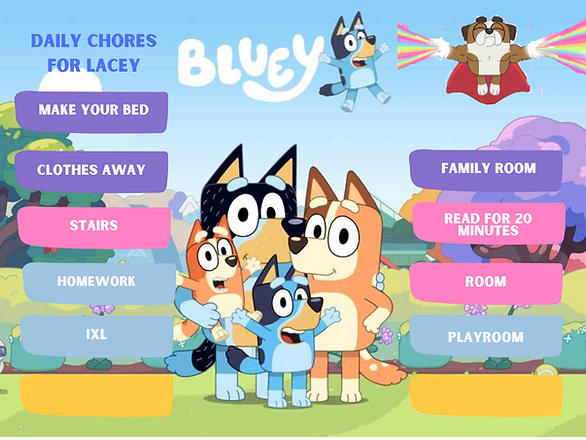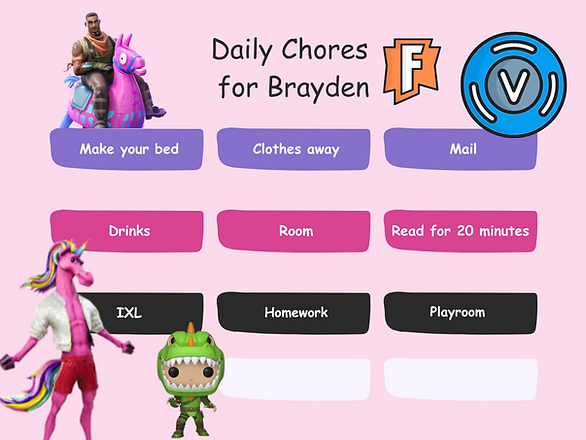For all the moms out there, you know the routine: every day feels like a juggling act with an endless list of tasks. But when we involve our kids and start teaching children about household chores, it’s more than just lightening our load. It’s a crucial step in their development. Engaging our kids in daily household activities goes beyond keeping things neat. It’s about imparting essential life skills and values. By guiding our children through household chores, we’re not just gaining an extra set of hands; we’re helping them become responsible and capable individuals.

The Importance of Teaching Children about Household Chores
Building Responsibility
Learning to Take Charge: Chores are a fantastic way for kids to learn about responsibility. When they are given a task, whether it’s feeding the pet or tidying their room, they learn to take ownership of their duties. This sense of responsibility is a vital skill that they’ll carry into adulthood.
Enhancing Self-Esteem
A Sense of Accomplishment: There’s something inherently satisfying about completing a task. For kids, the act of finishing a chore provides a real sense of accomplishment and pride. This boosts their self-esteem and makes them feel valued and capable.
Understanding the Value of Work
Work Equals Reward: Chores teach children that work leads to rewards. Whether the reward is a tangible one, like a small treat, or an intangible one, like a family’s gratitude, children learn the important life lesson that effort leads to positive outcomes.
Fostering Independence
Learning to Do Things on Their Own: As children grow, they seek opportunities to assert their independence. Chores provide a safe and structured way for them to do this. By learning to do things on their own, they become more self-reliant and confident in their abilities.
Developing Life Skills
Practical Skills for the Future: Chores are not just about keeping the house clean; they’re about teaching life skills. Cooking, cleaning, and organizing are skills they’ll use throughout their lives. Early exposure to these tasks means they’re better prepared for the future.
Teamwork and Family Contribution
Being Part of a Team: When everyone in the family has chores, it fosters a sense of teamwork. Children understand that they are contributing to the family’s well-being, which can strengthen family bonds and teach them about cooperation and collaboration.
Time Management Skills
Juggling Tasks Effectively: Chores can help children develop time management skills. They learn to balance their responsibilities, like homework and chores, which is an invaluable skill for their academic life and beyond.
Teaching Respect and Care
Respecting Environment and Belongings: By involving children in household chores, we teach them to respect and take care of their surroundings and belongings. This understanding of care extends to how they treat public spaces and others’ properties as they grow.
Setting the Foundation for Future Success
A Long-Term Impact: The discipline and habits formed through regular chores lay the foundation for future success in various aspects of life, be it personal or professional. Children who grow up doing chores are often better equipped to handle challenges and responsibilities later in life.

Age-Appropriate Chores: Teaching Children About Household Chores
Deciding which chores are suitable for your children can sometimes feel like a puzzle. The key is to match chores to their developmental stage. Let’s break down what tasks are appropriate for each age group, keeping in mind that all kids are unique and their abilities may vary.
Toddlers (Ages 2-3)
Simple and Satisfying Tasks:
- Picking Up Toys: After playtime, encourage them to put their toys back where they belong. This can be turned into a fun game.
- Feeding Pets: With supervision, toddlers can help pour food into a pet’s bowl, teaching them about caring for others.
- Wiping Spills: Give them a small cloth to wipe up spills, turning cleaning up into a fun activity.
- Dusting: Hand them a small, soft duster. They might not be very effective, but they’ll love being involved.
Preschoolers (Ages 4-5)
Increasing Responsibility:
- Setting the Table: Simple tasks like placing napkins or spoons on the table are great for this age.
- Helping with Laundry: Sorting socks and handing clothes to be hung can be fun for them.
- Watering Plants: Give them a small watering can and let them take care of the houseplants.
- Assisting in Cooking: Let them wash vegetables or stir ingredients under your watch.
School-Age Children (Ages 6-9)
More Complex Tasks:
- Sorting Laundry: They can now sort laundry by color and fabric type.
- Vacuuming and Sweeping: Handling a broom or a lightweight vacuum can be exciting for them.
- Simple Cooking Tasks: With supervision, they can help with baking or preparing simple dishes.
- Gardening: Digging, planting, or weeding can be both educational and enjoyable.
Tweens (Ages 10-12)
Preparing for Independence:
- Cleaning Bathrooms: They can learn to clean sinks, mirrors, and countertops.
- Meal Preparation: Simple meal planning and cooking with minimal supervision are great skills for this age.
- Managing Laundry: Washing, drying, and folding their laundry should be manageable.
- Grocery Shopping: They can help with making grocery lists and shopping, understanding budgeting and meal planning.
Teenagers (Ages 13+)
Near-Adult Responsibilities:
- Advanced Cooking: Preparing full meals and understanding nutrition.
- Handling Finances: Assisting in budgeting for groceries or personal expenses.
- Yard Work: Mowing the lawn, gardening, or shoveling snow.
- House Maintenance: Basic repairs or maintenance tasks can be introduced.
Tips for Success When Teaching Children about Household Chores
- Encourage, Don’t Demand: Make chores feel like a part of daily life rather than a burden.
- Be Patient: They might not do it perfectly, but the effort is what counts.
- Make It Routine: Consistency helps children understand that chores are a regular part of life.
- Lead by Example: When they see you participating in household tasks, they are more likely to follow suit.
Making Chores Fun
Transforming chores from mundane tasks into enjoyable activities can make a world of difference in how our children perceive them. I make personalized chore charts for my kiddos, Brayden and Lacey. I let them design what they look like and then we laminate them, so they can use a dry erase marker as they get through their chores each day. The kids gets excited when it’s time to switch chores each semester because that means that they get to redesign their charts again.


Let’s explore some creative ways to make household chores fun and engaging for kids.
Gamify the Process
- Chore Charts and Stickers: Create a colorful chore chart and let your child add stickers or check off tasks as they complete them. This visual representation of their achievements can be incredibly satisfying.
- Chore Bingo: Make a bingo board with different chores in each square. When they complete a row or column, reward them with a small treat or privilege.
- Timed Challenges: Set a timer and challenge your child to complete a task before it rings. This can turn a boring chore into an exciting race against time.
Incorporating Play
- Role-Playing: Turn chores into a role-playing game. For instance, while cleaning, they could be on a treasure hunt, or while gardening, they could be explorers in the jungle.
- Storytelling: Invent stories related to the chores. Maybe the dust bunnies are mischievous creatures that need to be caught, or the clothes in the laundry are ‘sea creatures’ that need to be ‘rescued’ from the water.
Making It a Family Activity
- Chore Dance Party: Put on some lively music and dance together while doing the chores. It’s a great way to make the tasks feel like a party.
- Teamwork Challenges: Create teams within the family and see who can complete their set of chores first. This promotes a sense of teamwork and competition.
Add Creative Twists When Teaching Children About Household Chores
- Chore Wheel: Make a chore wheel that your child can spin each week to find out their tasks. The suspense of what they’ll land on can be thrilling.
- Mystery Chores: Write chores on slips of paper and put them in a jar. Let your child draw a ‘mystery chore’ each day.
Educational Elements
- Learning Opportunities: Use chores as learning moments. For example, cooking can involve lessons about measurements, and sorting laundry can teach about colors and materials.
- Cultural Exploration: Introduce a cultural aspect to certain chores. For instance, while cooking, explore dishes from different countries.
Rewards and Recognition
- Praise and Encouragement: Always acknowledge their efforts. Appreciation goes a long way in making them feel good about what they’ve done.
- Reward System: Consider a reward system, like a point system where points earned from chores can be exchanged for a special treat or activity.
Adjusting the Attitude
- Positive Language: Use positive language around chores. Instead of calling them ‘tasks’ or ‘duties’, refer to them as ‘missions’ or ‘adventures’.
- Model Positivity: Show enthusiasm when doing your own chores. Children often mimic adult attitudes.
Teaching Children the How and Why of Household Chores
Educating our children on the ‘how’ and ‘why’ of household chores is important. It’s not just about getting the job done; it’s about understanding the value behind each task and learning the proper way to do it. Let’s delve into how we can effectively teach these aspects.
The ‘Why’ Behind Household Chores
- Explaining the Importance: Discuss with your children why each chore is necessary. For instance, explain how doing dishes prevents germs from spreading, or how sorting recycling helps the environment.
- Relating to Bigger Values: Link chores to larger life lessons, like responsibility, teamwork, and caring for belongings and others. This helps children understand that their actions have significance beyond the immediate task.
- Real-Life Consequences: Illustrate the consequences of not doing chores. Show them how an untidy room can lead to lost items or how not watering plants can affect their growth.
The ‘How’ of Chores
- Step-by-Step Guidance: Break down each chore into manageable steps. For younger kids, use simple language and demonstrate each step. For older children, encourage them to take notes or create their own instructions.
- Hands-On Teaching: Initially, do the chores alongside your children. This provides a practical learning experience and shows them the correct techniques.
- Regular Check-ins: As they gain confidence and skill, gradually step back but check in regularly to offer guidance and answer questions.
Reinforcing Learning When Teaching Children About Household Chores
- Practice and Patience: Remember that learning takes time. Encourage practice and be patient with mistakes. It’s about progress, not perfection.
- Positive Feedback: Offer constructive feedback and praise their efforts and improvements. This boosts their confidence and reinforces learning.
- Problem-Solving Skills: If they encounter a problem, guide them in figuring out a solution. This teaches critical thinking and resourcefulness.
Using Resources
- Educational Videos or Books: Utilize child-friendly videos or books that explain chores in an engaging way. This can be especially helpful for visual or auditory learners.
- Checklists and Guides: Create simple checklists or guides for each chore. Visual aids can help children remember the steps and processes involved.
Leading by Example
- Modeling Behavior: Children learn by observing. Demonstrate a positive and proactive approach to your chores. Show them that chores are a normal and important part of daily life.
- Sharing Stories: Share stories of how you learned to do chores when you were their age. This creates a connection and shows them that everyone starts as a learner.
Making Connections
- Real-World Applications: Connect chores to skills they will need as adults, like cooking, cleaning, and organizing. Explain how these skills are essential for independence.
- Cultural and Family Traditions: Discuss how certain chores or ways of doing things are part of family or cultural traditions, giving a sense of heritage and belonging.
Rewards and Recognition
Recognizing and rewarding our children for their contribution to household chores is an essential part of the teaching process. It not only motivates them but also reinforces the positive behavior we want to see. Here’s how we can effectively incorporate rewards and recognition into our chore routine.
The Power of Positive Reinforcement
- Verbal Praise: Regular, sincere praise for a job well done goes a long way. Compliment their effort, not just the outcome, to encourage a strong work ethic.
- Celebrating Achievements: Acknowledge milestones, like when they complete a chore for the first time or master a more challenging task. Small celebrations or words of appreciation can make them feel proud and valued.
Tangible Rewards
- Reward System: Consider a system where chores are linked to rewards. This could be a point system where points earned can be traded for a small treat, an extra half-hour of screen time, or a special outing.
- Chore Allowance: For older children, linking chores to a small allowance can teach them about money management and the value of work.
Intangible Rewards
- Quality Time: Offer rewards that involve spending quality time together, like choosing a family movie or planning a day out. This emphasizes that the ultimate reward is meaningful time with loved ones.
- Extra Privileges: Earned privileges, like choosing the dinner menu or having a friend over, can be a great motivator.
Consistency in Rewarding
- Setting Clear Expectations: Be clear about what earns a reward. This helps children understand what is expected of them and avoids confusion.
- Fairness and Consistency: Ensure that rewards are fair and consistent. This teaches them about justice and equal treatment.
Encouraging Intrinsic Motivation
- Fostering Internal Satisfaction: While tangible rewards are effective, also focus on building intrinsic motivation. Help them to see the internal satisfaction and pride that comes from contributing to the family and keeping their space tidy.
- Connecting to Bigger Goals: Discuss how doing chores is part of achieving bigger goals, like being independent or helping the family run smoothly.
Recognition Beyond Rewards
- Displaying Work: Displaying their work, like a well-set table or a clean room, and acknowledging it in front of others can be a great form of recognition.
- Feedback Sessions: Have regular feedback sessions where you discuss what they’ve done well and what can be improved. This shows that you value their contribution and are interested in their growth.
Adapting the Approach
- Age-Appropriate Rewards: Tailor rewards to suit the age and interests of your child. What motivates a preschooler will be different from what motivates a teenager.
- Personalizing Rewards: Pay attention to what each child values as a reward. Personalized rewards show that you understand and care about their individual preferences.
Overcoming Challenges
Introducing and maintaining a routine of household chores for children can come with its fair share of challenges. From resistance to inconsistency, there are hurdles that every mom faces. Here’s how we can address these challenges effectively.
Dealing with Resistance
- Understanding the Root Cause: Sometimes, children resist chores because they feel overwhelmed or uninterested. Understanding the root cause of their resistance can help in addressing it effectively.
- Involving Children in Decision-Making: Allow your child to have a say in which chores they would like to do. This gives them a sense of control and can reduce resistance.
- Consistent Expectations: Consistency is key. Stick to the established chore routine even if there is resistance. Over time, chores will become a normal part of their routine.
When Chores are Too Challenging: Teaching Children About Household Chores
- Adjusting Tasks: If a chore is too difficult, break it down into smaller steps or simplify it. The goal is to make it manageable, not overwhelming.
- Providing the Right Tools: Sometimes, the right tools can make a difference. For instance, a lightweight vacuum cleaner can make cleaning easier for younger children.
- Offering Help and Support: Offer to do the chore together initially. Gradually, as they gain confidence, they can take on the task independently.
Leading by Example
- Modeling Positive Behavior: Show a positive attitude towards your chores. Children are more likely to follow suit when they see their parents handling tasks cheerfully and efficiently.
- Family Chore Time: Designate a time when everyone in the family does their chores together. This promotes a sense of camaraderie and makes it a part of family life.
Addressing Inconsistency
- Routine and Schedules: Establish a routine and a specific time for chores. Consistency helps in building habits.
- Visual Reminders: Chore charts or calendars can serve as visual reminders for children to do their chores.
Using Positive Reinforcement
- Praise and Encouragement: Offer praise and encouragement regularly. Acknowledging their efforts and progress can motivate them to be consistent.
- Rewarding Consistency: Consider giving rewards for consistent behavior over time, not just for completing a single task.
Making Chores a Learning Experience
- Teaching Problem-Solving: If they encounter a problem, guide them to find solutions. This teaches them resilience and problem-solving skills.
- Discussing the Impact of Chores: Regularly discuss how their contribution is making a difference. Understanding the impact of their work can be motivating.
Adapting to Change
- Flexibility: Be flexible in your approach. If a certain method isn’t working, be open to trying something new.
- Listening to Feedback: Listen to your child’s feedback about chores. Their input can provide valuable insights into what might make the process smoother for them.

Incorporating Life Skills: Teaching Children About Household Chores
Teaching children about household chores is not just about keeping the house tidy; it’s a golden opportunity to impart essential life skills. These skills are important for their development into well-rounded, independent adults. Let’s explore how we can seamlessly integrate life skills into the chore routine.
Financial Literacy
- Budgeting with Grocery Shopping: Involve older children in grocery shopping and budgeting. Teach them how to compare prices, stick to a budget, and understand the value of money.
- Saving and Spending: For chores tied to an allowance, discuss saving and responsible spending. This can be a practical introduction to managing finances.
Time Management
- Setting Deadlines for Chores: Encourage children to complete their chores within a set time. This teaches them to manage their time effectively, a skill vital for academic and professional success.
- Balancing Chores with Other Activities: Help them learn how to balance chores with homework, playtime, and rest. This skill in juggling different responsibilities is invaluable.
Cooking and Nutrition
- Basic Cooking Skills: Involve children in meal preparation. Teach them basic cooking skills and about nutrition. This promotes a healthy lifestyle and independence in food preparation.
- Meal Planning: Older children can help with meal planning. Discussing nutritional needs and preferences teaches them about a balanced diet and meal organization.
Home Maintenance
- Basic Repairs and DIY Projects: Teach older children basic home maintenance skills like changing a lightbulb, fixing a leaky faucet, or painting a wall. This fosters self-reliance and practical problem-solving.
- Gardening: Gardening chores teach about plant care, the environment, and patience. It’s also a therapeutic activity that connects them with nature.
Organizational Skills
- Decluttering and Organizing: Assign chores that involve organizing their room, books, or toys. This teaches them how to keep their personal space organized and manage their belongings.
- Planning and Executing Tasks: Encourage them to plan how they will tackle their chores. This helps in developing planning and execution skills.
Health and Hygiene
- Personal Hygiene: Assign chores related to personal care, like laundry or cleaning their bathroom. This emphasizes the importance of cleanliness and personal hygiene.
- Healthy Environment: Teach them how regular cleaning contributes to a healthy living environment, reducing germs and allergens.
Social Skills and Empathy
- Teamwork: By doing chores with siblings or parents, children learn about cooperation and teamwork. This is essential for building strong interpersonal skills.
- Understanding Family Roles: Discuss how each family member contributes to the household, fostering empathy and appreciation for others’ efforts.
Adaptability and Problem-Solving
- Handling Unexpected Issues: When unexpected problems arise during chores, guide them to find solutions. This teaches adaptability and critical thinking.
- Creative Approaches to Chores: Encourage them to come up with creative ways to complete chores. This enhances their problem-solving and creative thinking skills.
The Long-Term Benefits
Integrating household chores into the lives of our children offers far-reaching benefits that extend well beyond the immediate results of a tidy home. These benefits play a important role in their development into competent, responsible adults. Let’s explore the long-term advantages of teaching children about household chores.
Building a Strong Work Ethic
- Understanding the Value of Hard Work: Regular participation in chores teaches children that hard work is necessary to achieve results. This instills a strong work ethic that will benefit them in all areas of life, from academics to future careers.
- Persistence and Dedication: Completing chores, especially those that are less enjoyable, teaches persistence and dedication. Learning to tackle tasks diligently, regardless of their nature, is a valuable trait in the long run.
Fostering Independence and Self-Reliance
- Skills for Independent Living: Chores like cooking, cleaning, and budgeting are essential for independent living. Children who learn these skills are better prepared for life when they move out on their own.
- Confidence in Their Abilities: As children master various chores, they build confidence in their ability to handle tasks and solve problems independently.
Enhancing Teamwork and Collaboration
- Importance of Teamwork: By working together on household chores, children learn the importance of teamwork and collaboration. This skill is important in professional environments and personal relationships.
- Family Bonding: Shared responsibilities often lead to stronger family bonds and a sense of unity. It teaches children the value of supporting and helping each other.
Developing Time Management and Organizational Skills
- Balancing Responsibilities: Juggling chores with homework and leisure activities teaches children how to manage their time effectively.
- Organizational Skills: Regular chores require a certain level of planning and organization, skills that are highly beneficial in academic settings and professional life.
Cultivating Respect and Responsibility
- Respect for Personal and Shared Spaces: Chores teach children to respect their own space and shared areas. This fosters a sense of responsibility towards maintaining a clean and pleasant environment.
- Sense of Community and Contribution: Understanding their role in the family through chores helps children appreciate the concept of contributing to a community or group.
Preparing for Future Challenges
- Coping with Life’s Demands: The discipline and resilience developed through regular chores equip children to better handle life’s challenges and stresses.
- Adaptability: Exposure to various tasks and the need to sometimes improvise or find solutions fosters adaptability, an essential skill in today’s fast-changing world.
Promoting Health and Wellbeing
- Physical Activity: Many chores involve physical activity, which contributes to overall physical health.
- Mental Health Benefits: A clean and organized environment has been linked to reduced stress and better mental health. Engaging in chores can create a sense of order and accomplishment, boosting mental wellbeing.
Final Thoughts
Teaching children about household chores is more than just getting help around the house; it’s about preparing them for the future. By making chores a part of our children’s daily routine, we are not only keeping our homes organized but also nurturing responsible, capable, and self-sufficient individuals. Every sock they pick up, every dish they wash, is a step towards becoming well-rounded adults.
All work and no play sounds a bit boring though, so once the kids are on track with their chores, make time for a little family fun!



